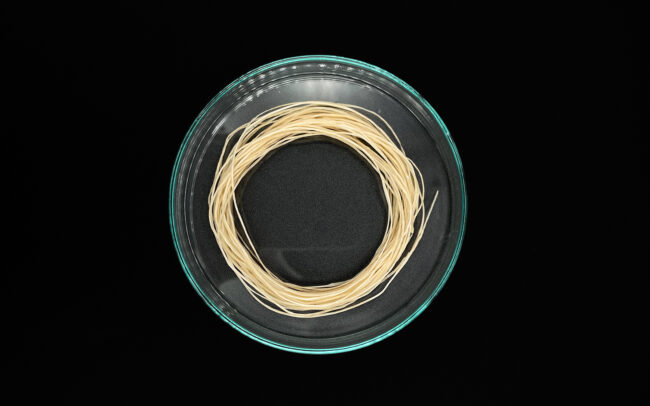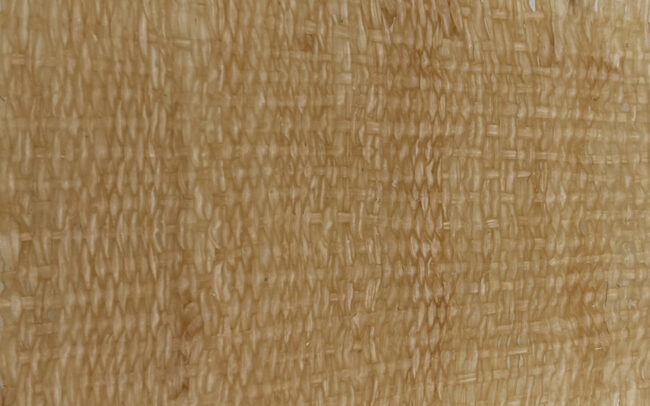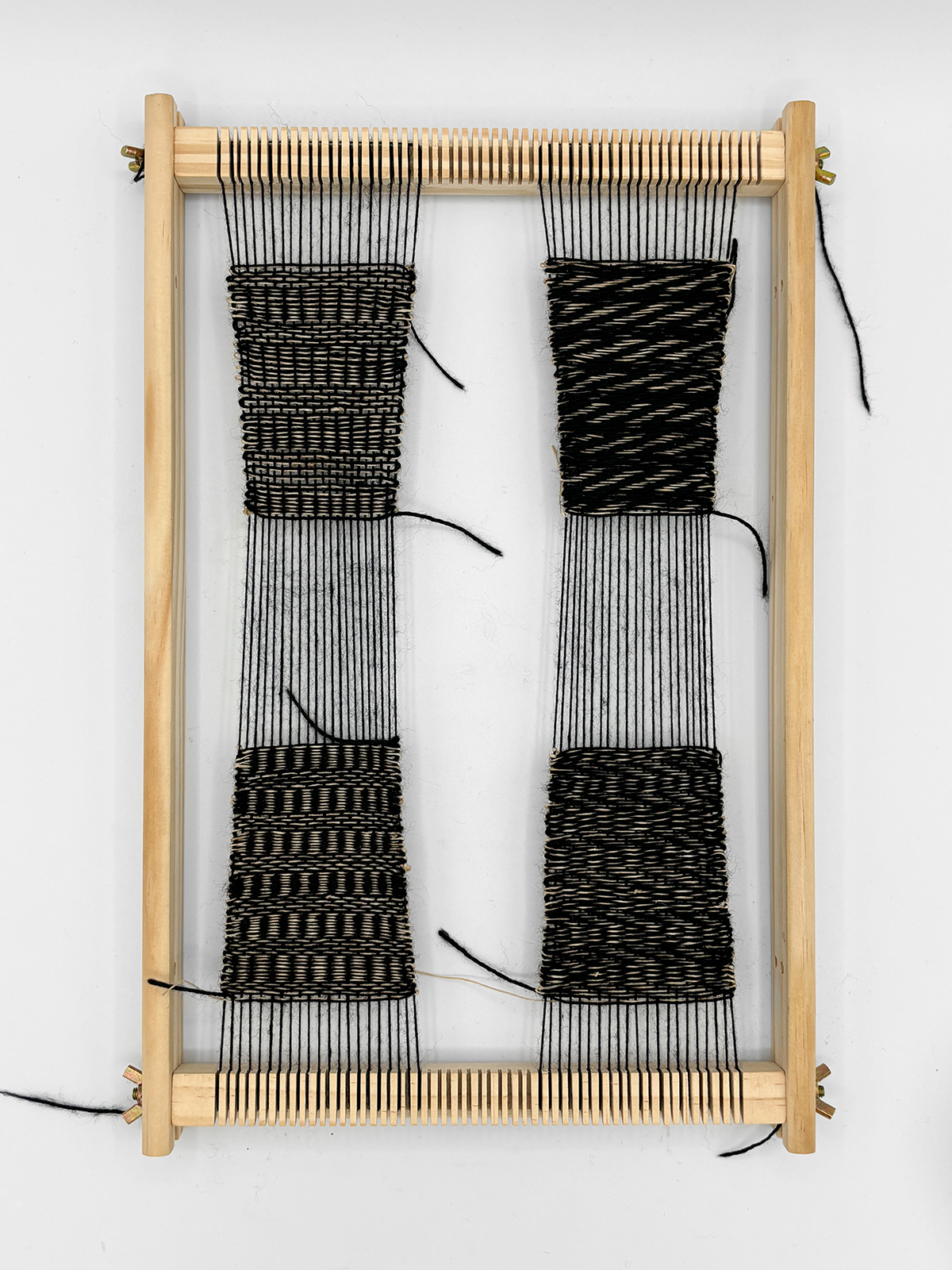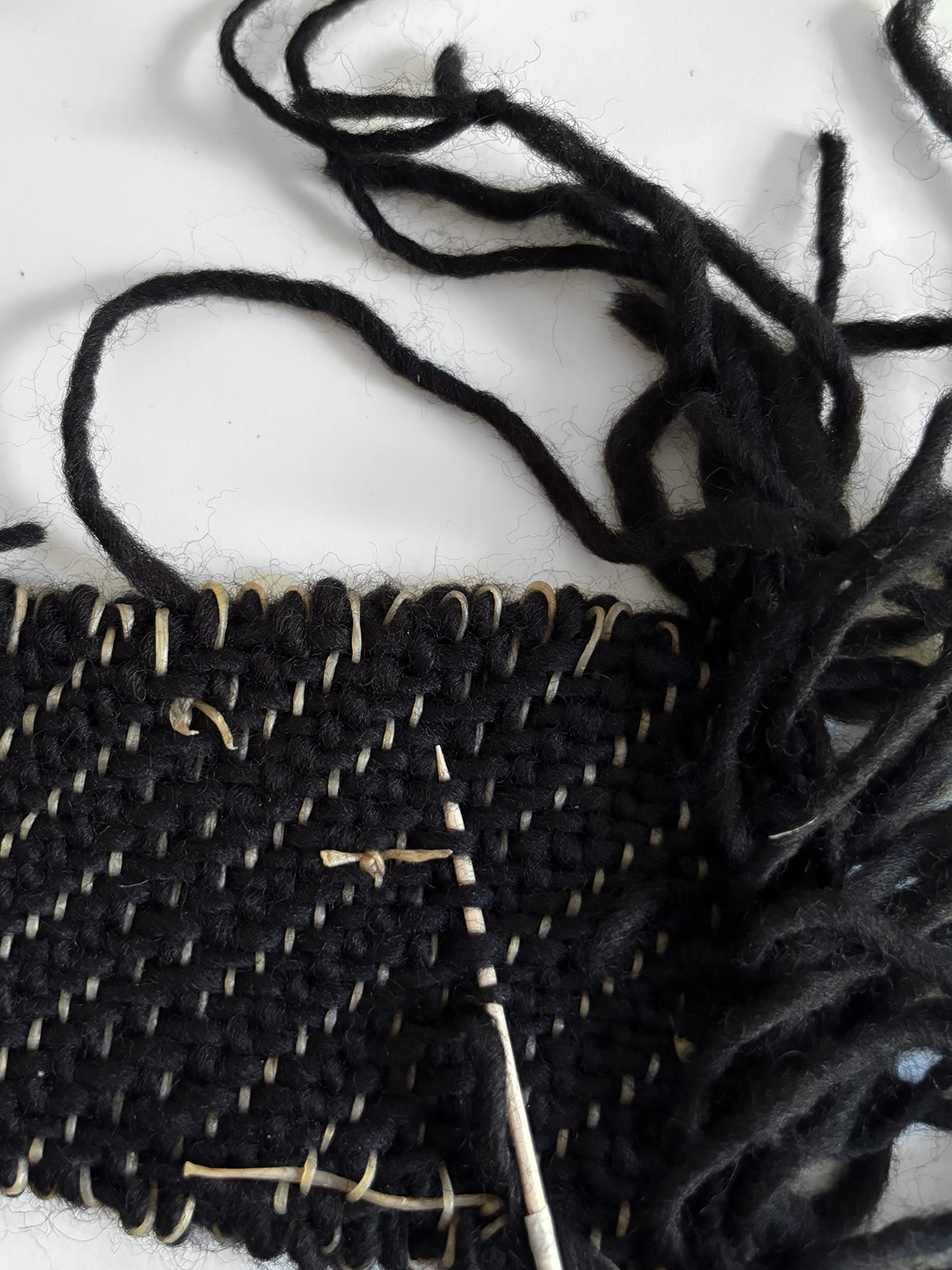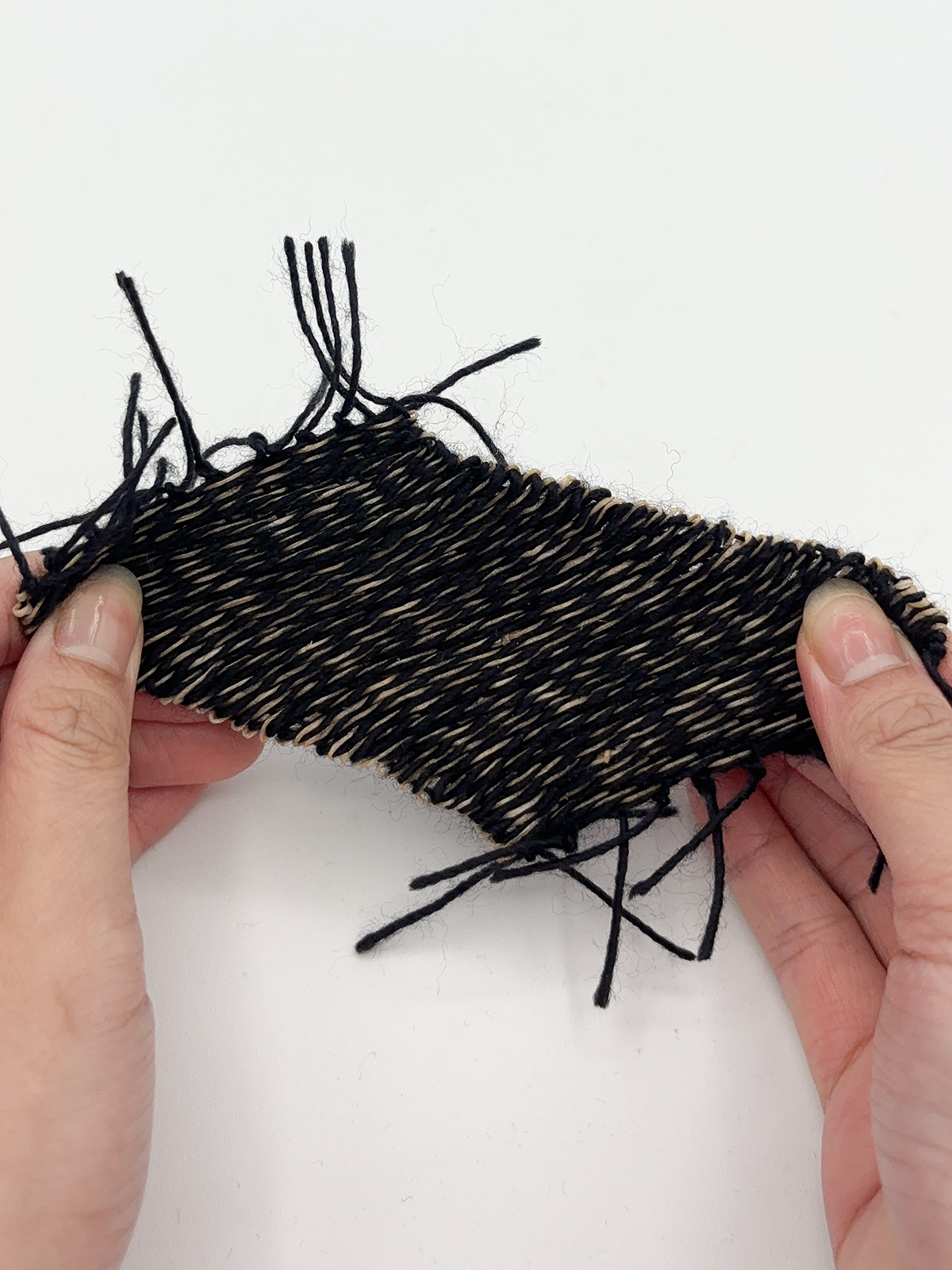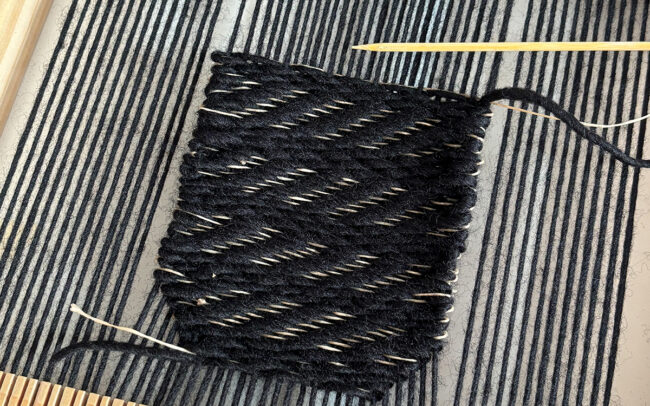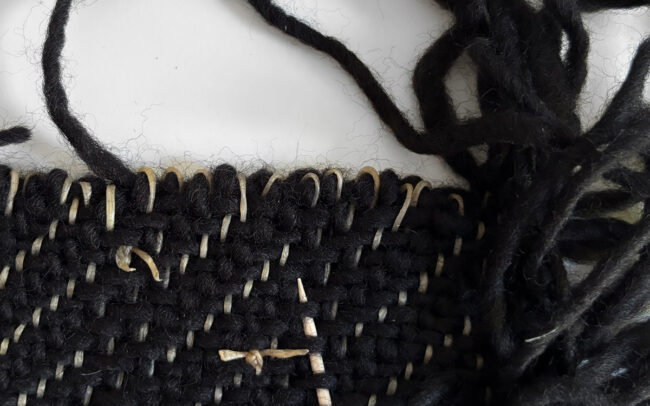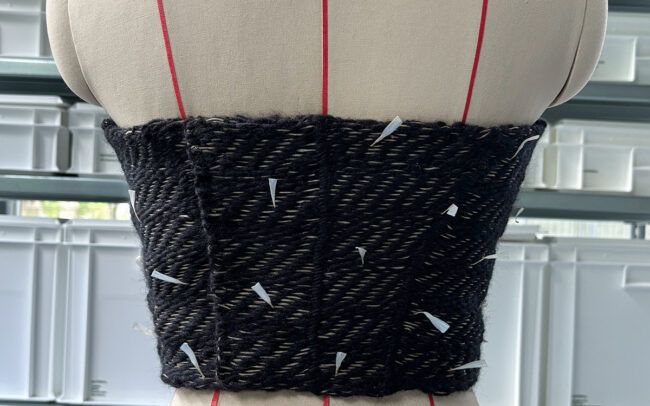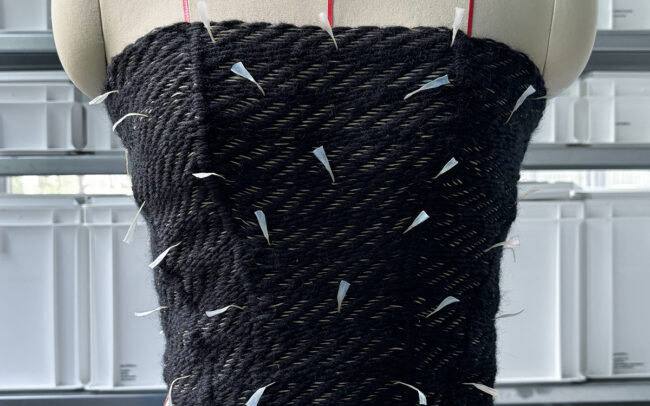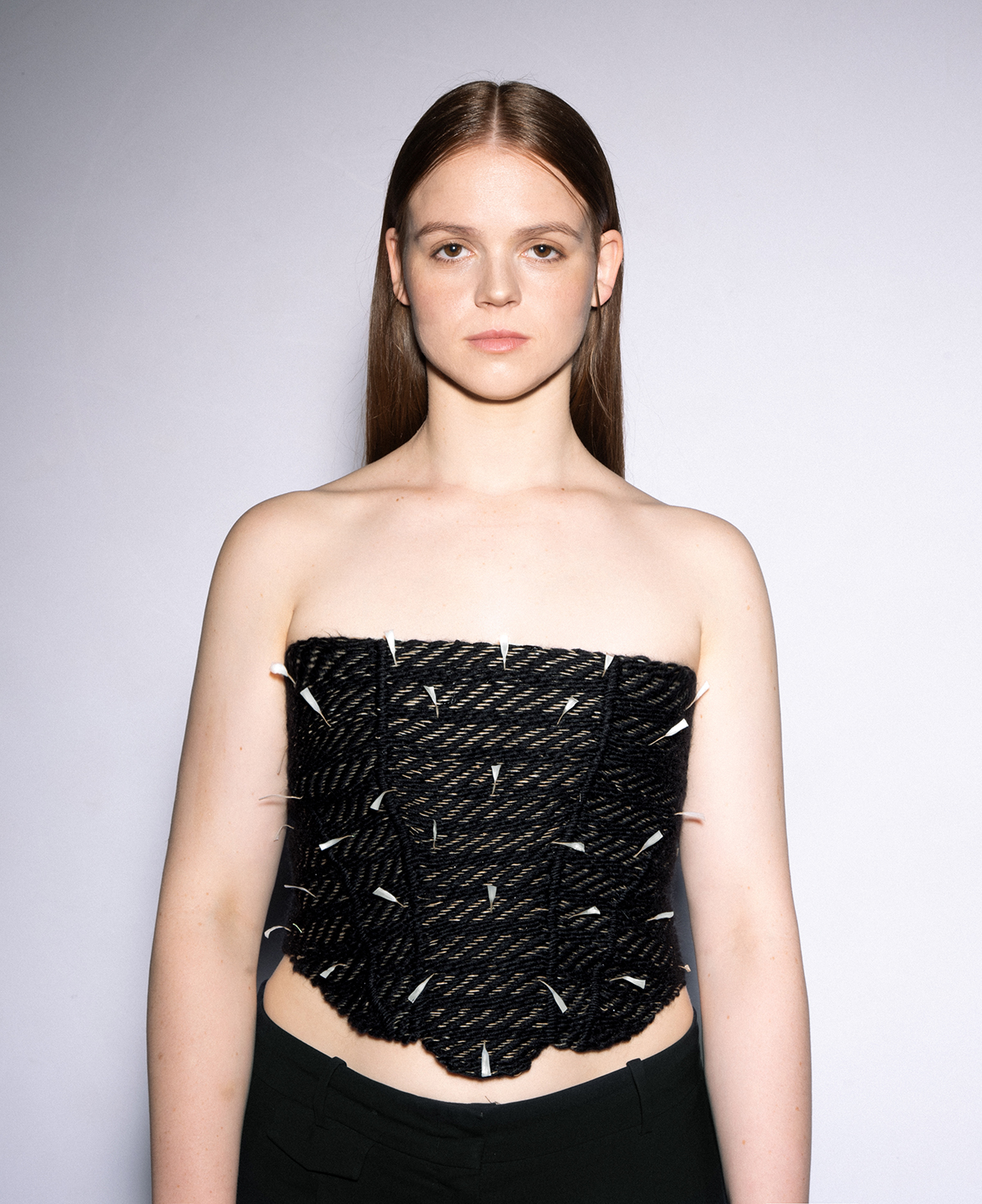Interweaving kombucha threads and natural yarn
Understanding Kombucha Threads
Kombucha threads exhibit flexibility and softness that fluctuate with environmental conditions—a fascinating yet reversible characteristic that currently limits their stability for textile applications. To address these challenges, the research explored co-weaving kombucha threads with other biodegradable materials, enhancing durability and strength while deepening the understanding of kombucha threads as a functional textile.


